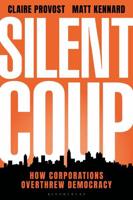Publisher's Synopsis
Seminar paper from the year 2013 in the subject Politics - Topic: Peace and Conflict, Security, grade: B+, Webster University, language: English, abstract: This report provides an analysis of the conflict which exists in combatting maritime piracy in Somalia. It identifies key factors that are responsible for the development of Somali piracy and the actors which aim to stop it. Furthermore, the report addresses the legal, social, militaristic, economic, and political complications that arise from varying international strategies to effectively combat policy. The report outlines several underlying historical and geographical factors followed by the impacts that Somalia has faced in terms of its central government's collapse in 1991. As is discussed, Somalia as a failed state has allowed for piracy to flourish in conjunction with the described underlying factors. It also describes the cyclical trend, or feedback loop, that many of these factors have for promoting piracy while piracy in return antagonizes the issues caused by these factors. The obstacles towards combating piracy are also discussed demonstrating the difficult scenario that policymakers will need to address in order to effectively treat the cause of piracy. In order to identify the contradiction that exists pertaining to the issue of Somali piracy, this report will focus on Somalia's fractured society and its incompatibility with international democratic norms. As will become evident, the reduction of piracy hinges on the ability for Somalia's central government to stabilize. However, due to the mentioned fractured society within Somalia, the ability to develop a stable and functional democratic government is in direct conflict with the nature of Somali society.










